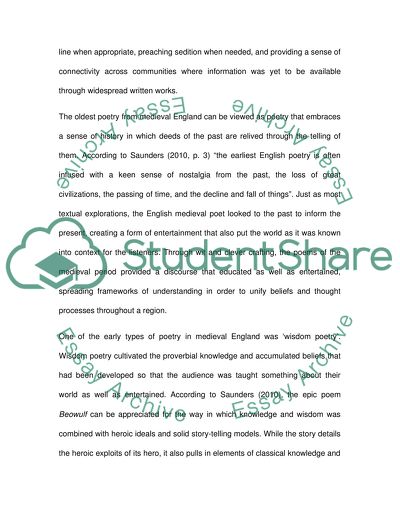Cite this document
(“The Role of the Poet in Medieval Society Essay Example | Topics and Well Written Essays - 1250 words”, n.d.)
Retrieved from https://studentshare.org/literature/1430048--from-the-texts-you-have-read-what-have-you
Retrieved from https://studentshare.org/literature/1430048--from-the-texts-you-have-read-what-have-you
(The Role of the Poet in Medieval Society Essay Example | Topics and Well Written Essays - 1250 Words)
https://studentshare.org/literature/1430048--from-the-texts-you-have-read-what-have-you.
https://studentshare.org/literature/1430048--from-the-texts-you-have-read-what-have-you.
“The Role of the Poet in Medieval Society Essay Example | Topics and Well Written Essays - 1250 Words”, n.d. https://studentshare.org/literature/1430048--from-the-texts-you-have-read-what-have-you.


